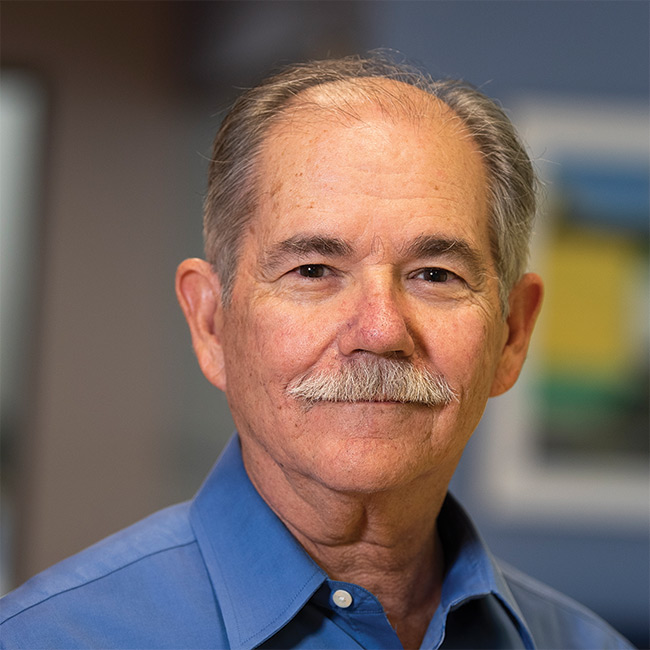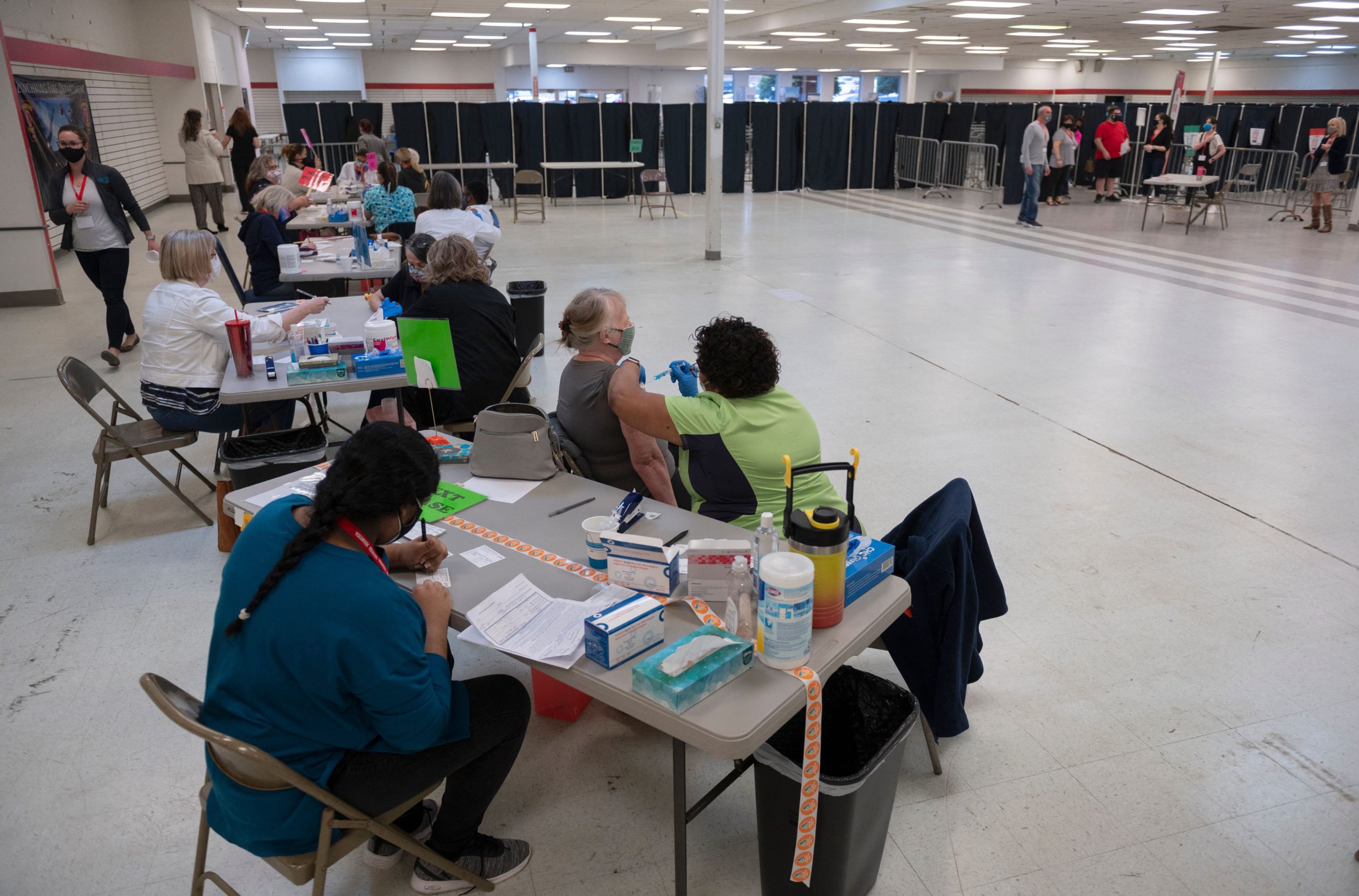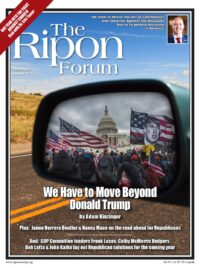
Most disasters or tragic events have a clear starting point. The terrorist attacks on September, 11, 2001. Hurricane Katrina making landfall on August 29, 2005. Japan bombing Pearl Harbor on December 7, 1941. These dates are seared into our collective consciousness because they are moments that changed our nation and the world.
The COVID-19 pandemic is different in that it did not begin at any one moment or on any single day. Rather, it rolled in slowly like a storm on the horizon, first raising questions, and then causing worry, before bringing life as we know it to a complete stop in early March of last year. Twelve months after the storm rolled in, there are promising signs that the storm is starting to slowly roll out.
Deaths are down, case counts are falling, and the number of Americans being vaccinated is increasing every day. And yet with reports out of Europe and Africa and South America about rapidly-spreading variants that may be resistant to the current vaccines, concerns have arisen about whether the pandemic is really coming to an end, or whether the virus is mutating into a different form that will continue to threaten us and has the potential to spread out of control.
The Ripon Forum recently asked Dr. Eric Toner about these concerns and his thoughts on America’s battle against the coronavirus one year into the fight. Dr. Toner knows this battle better than most. As a Senior Scholar with the Johns Hopkins Center for Health Security and a Senior Scientist in the Department of Environmental Health and Engineering at the Johns Hopkins Bloomberg School of Public Health, his primary areas of interest are healthcare preparedness for catastrophic events, pandemic influenza, and medical response to bioterrorism.
He also serves as Managing Editor of the online newsletter Clinicians’ Biosecurity News and is an Associate Editor of the journal Health Security, the leading peer-reviewed journal in this field. Last summer, as the virus was taking hold across the nation, he authored an essay for the Forum about the importance of wearing a mask and other keys to staying heathy in this age of COVID-19.
________________________________
Forum: One year into the fight against the coronavirus, what has surprised you, what has disappointed you, and what do you consider our greatest success?
Dr. Toner: I was surprised by how well the various public health interventions (masking, distancing, density reduction, ventilation) worked in limiting spread of the disease. I was disappointed (to say the least) by the failure of the [Trump] Administration to follow, encourage, or enforce the public health guidance.
Our greatest success has been getting multiple very effective vaccines in less than a year of the start of the pandemic.
Forum: Talk for a moment about the threat posed by COVID variants. Where are we in the effort to identify the variants here in America, and what steps are being taken to minimize the possibility they will spread out of control?
Dr. Toner: The threat posed by the variants is uncertain. The B.1.1.7 (UK) variant spreads more readily than prior strains and is becoming more common in the U.S. but at least so far it has not been associated with large scale outbreaks.
The key to controlling the variants is getting most of the population vaccinated ASAP and continuing public health interventions to reduce spread until that happens.
Some of the other variants are somewhat less vulnerable to the current vaccines but importantly the vaccines still seem to work adequately. The key to controlling the variants is getting most of the population vaccinated ASAP and continuing public health interventions to reduce spread until that happens.
Forum: How about the vaccine rollout? Are you pleased with the way production and distribution is being ramped up, and what, if any, additional actions need to be taken to ensure that the American people are being vaccinated in the most expeditious and coordinated way?
Dr. Toner: Despite many people’s frustration with getting a vaccination appointment, the rollout has gone quite well overall. We have more vaccine sooner than expected and we are administering the vaccines faster than expected.
The U.S. is in the top three of countries for the number of vaccinations per capita, and the rate of vaccination is accelerating as more and more vaccine is manufactured.

Forum: If a vaccine booster is needed to offer additional protection against one of the variants, how will that impact the effort to reopen our schools, further reopen the economy, and generally return life to the way it used to be? Will it set things back by two months? Three months? Or is that just too difficult to say at this point in time?
Dr. Toner: I doubt it will affect any of those things because the current vaccines provide some substantial protection. I think it just means that we all may be getting booster shots a bit later – maybe in the fall or winter.
Forum: We interviewed author John Barry last fall about the Great Influenza of 1918. He said he thought that pandemic came to an end because people built up immunity, and the virus mutated into a milder form over time. How will this pandemic come to an end, and will this year look any different than the last one in terms of masking, maintaining social distance, and adhering to other behaviors that will keep us all safe?
Dr. Toner: I agree with John and I think the same thing will happen with SARS CoV-2. I believe it will become a relatively mild seasonal illness like the flu in many ways (and like the other human coronaviruses) and that we will get periodic COVID vaccinations
The U.S. is in the top three of countries for the number of vaccinations per capita, and the rate of vaccination is accelerating as more and more vaccine is manufactured.
I think the social distancing will end this year as case counts go way down –perhaps even by this summer. I hope that mask wearing during flu and cold season remains the new normal.
Forum: Bill Gates and others have called COVID-19 a wake-up call in that it could have been a lot worse in terms of lethality, and has opened our eyes to the fact that pandemics can strike at any time. What — if any — steps are being taken at this point to prevent and prepare for the next pandemic, and what more needs to be done?
Dr. Toner: I think he is right. The first thing we need to do is a thorough autopsy of what happened in this pandemic and that will take some time. There clearly will be work to do in the realm of diagnostic testing, public health infrastructure, medical supply chains, and disease surveillance, among many others.
—###—




